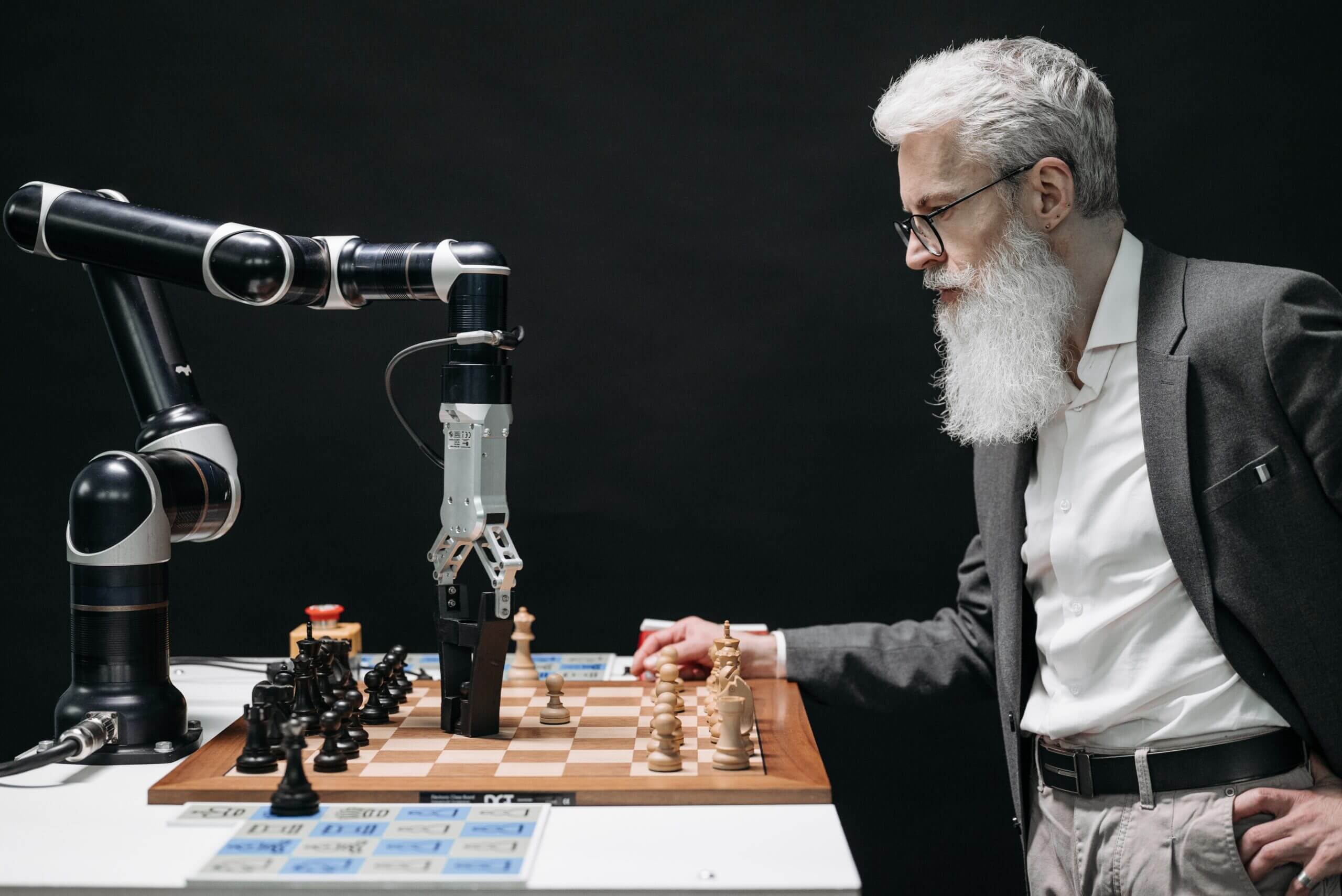
primer domain was triggered too early. This is usually an indicator for some code in the plugin or theme running too early. Translations should be loaded at the init action or later. Please see Debugging in WordPress for more information. (This message was added in version 6.7.0.) in /home/ikq167bdy5z8/public_html/propertyresourceholdingsgroup.com/wp-includes/functions.php on line 6114
A.I. is on its way to high-paying white-collar jobs with unknown results. The idea that technological growth can change the job market is familiar.
For example, factory floors and production lines are full of robots and other forms of automation. Experts say it has had different effects on the workplace, such as getting rid of, changing, improving, or creating new jobs.
Experts said the same thing will happen with artificial intelligence, which is still pretty new and changes quickly. But this technology will likely help a different part of the American population than in the past.
“A.I. is different from other technologies that have come out in the last 150 years,” said Rakesh Kochhar, an expert on job trends and senior researcher at the independent Pew Research Centre. “It is spreading from factories to offices, where white-collar, higher-paid workers tend to be. Is this going to be a slow-moving force or a tsunami? Kochhar told him. “We don’t know,” he replied.
A.I. is designed to think like a human or copy people’s thoughts. Kochhar said that it allows computers and tools to do things by themselves. In November 2022, an A.I. robot called ChatGPT was released by the San Francisco company OpenAI. Millions of people used the program to write essays, song lyrics, and computer code, which led to a national discussion; this is different from robots, which usually do fundamental things like lift or move items.
Kochhar found that 19% of jobs in the U.S. have a lot to do with A.I. in a new Pew study. The study uses the word “exposure” because it’s not clear what the effects of A.I. might be or whether they’re good or bad.
In the high-exposure group are jobs like budget analysts, tax preparers, expert writers, and web developers. The study found that they often need more analytical skills so that A.I. could replace or help with their “most important” job chores.
According to the study, most people who work with artificial intelligence are women, white or Asian, earn more money, and have college degrees. An economist at the website Indeed named Cory Stahle said, “There could be some job displacement.” A.I. could, however, “open up new jobs that we don’t even know about yet. It’s still too early to tell,” he said.
According to the Pew study, 23% of American workers have little experience with A.I. These workers, like barbers, cleaners, firefighters, pipelayers, nannies, and other people who care for children, usually do physical jobs that A.I.A.I. can only do with help (at least not yet). The A.I. affects the additional 58% of jobs in different ways.
The Pew study, which used information from the U.S. Department of Labor’s Occupational Information Network, found that in 2022, workers in the most exposed jobs made an average of $33 per hour, while those in the least exposed positions made an average of $20 per hour.
Harry Holzer, a professor at Georgetown University and former top economist at the U.S. Labour Department, says that people have been afraid of technology and its ability to take away jobs since the Industrial Revolution.
“So far, most of these fears have been wrong, but not all,” Holzer wrote not too long ago. Holzer, who wrote the book “Shifting Paradigms” about the digital economy in 2022, said that technology often creates as many jobs as it takes away over time. With the help of technology, some people can get more done.
That lowers the prices and costs of goods and services, which makes people “feel richer” and spend more, which, according to him, helps create new jobs. Gene Kindberg-Hanlon, an economist at the World Bank, says that new technologies are insufficient for net jobs in advanced economies like the U.S. in the short run, this causes a drop of two percentage points in jobs as a whole. After four years, he found it had a “modestly positive” effect.
Holzer said that some people “lose out,” though. Most of these people are workers who have to compete directly with machines and end up fighting. “Since the 1980s, digital automation has made the labour market even more unequal because many production and office workers have lost their jobs or seen their wages go down,” Holzer said.
He said most business people win because they make more money and don’t need as much help.
The “new automation” of the future, which could include artificial intelligence, “has the potential to cause much more worker displacement and inequality than older generations of automation,” he said. For instance, millions of car drivers, people who work in shops, lawyers, accountants, finance experts, people who work in health care, and many others could lose their jobs.
It will also bring about new problems and needs, such as relearning or learning new skills. Holzer said this could mean that low-income people must find child care. Stahle said the data shows a “significant uptick” in companies seeking workers with A.I. skills.
In July 2018, about 20 out of every million job ads on Indeed asked for A.I. skills. As of July 2023, there were 328 jobs for every million people. Stahle said this is still a tiny part of all job ads on Indeed, but it is a significant change from “basically zero” five years ago. He also said most of the growth happened last year because ChatGPT has become popular.
Stahle said that most of the growth has been in two groups: those who make A.I. technology and those who use it in creative or marketing work. He also said that it would be interesting to see how jobs like marketing, sales, customer service, law, and real estate might change because of AI.